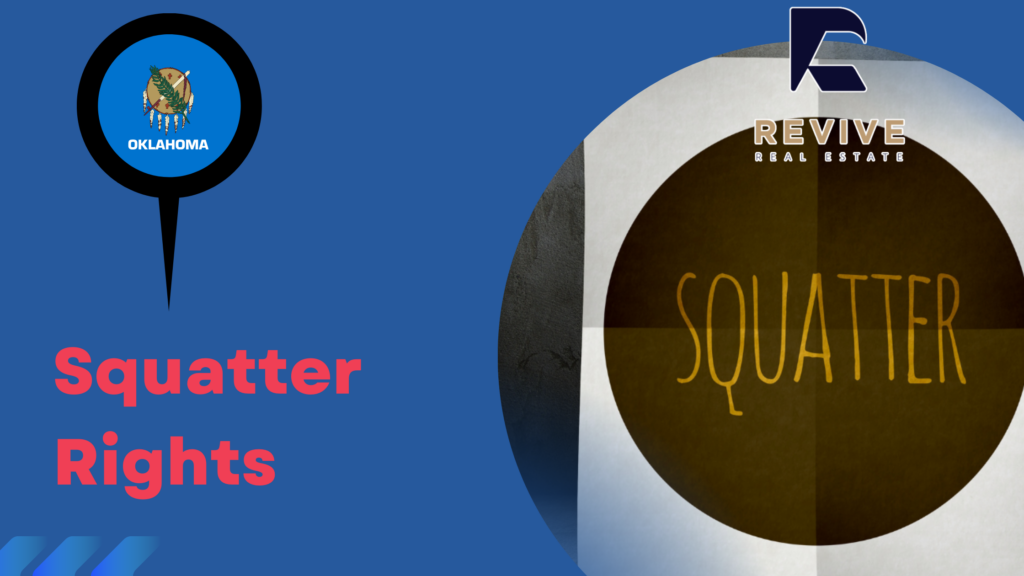
Oklahoma Squatters: Legal Perspectives
What Are the Key Aspects of Oklahoma’s Squatter Laws?
Understanding squatter laws in Oklahoma is crucial for both property owners and squatters. These laws, known as squatters’ rights or adverse possession, let someone claim property ownership if specific conditions are met. Under Oklahoma property law, squatters must occupy the property openly, continuously, exclusively, and against the owner’s wishes for a certain time. Meeting these requirements can lead to obtaining a legal title.
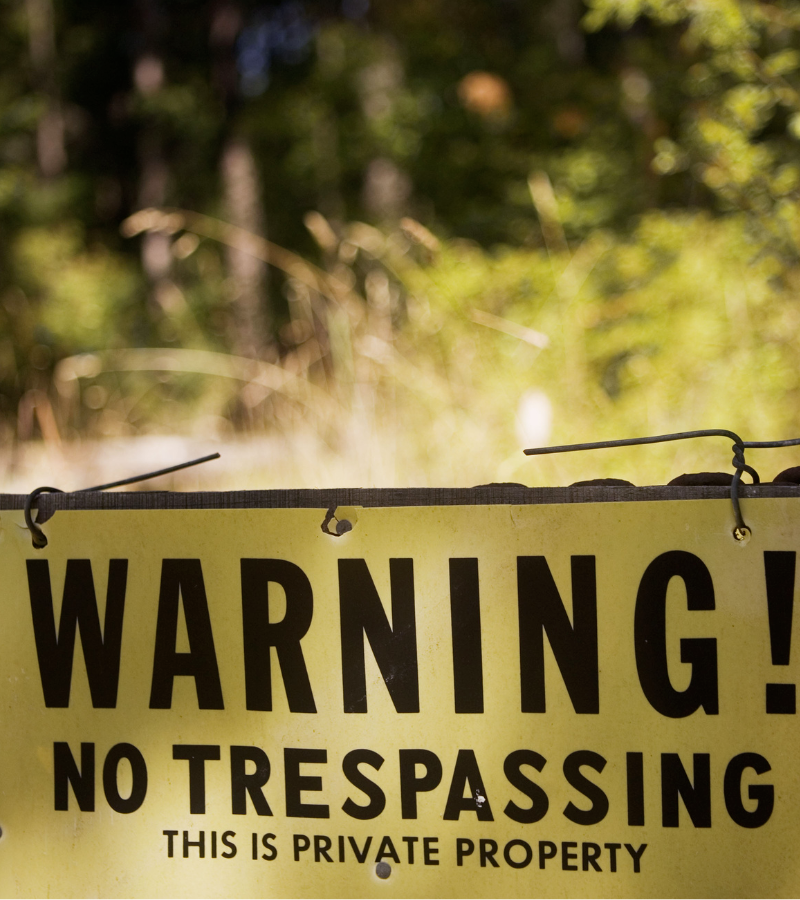
How do Adverse Possession Laws Work in Oklahoma?
Adverse possession laws in Oklahoma explain how someone can gain property ownership through long-term use. To claim squatters’ rights:
- Continuous Possession: The squatter must maintain uninterrupted occupancy.
- Open and Notorious Use: The occupation must be visible to others.
- Exclusive Possession: The squatter cannot share the property with the owner.
- Hostile Claim: This means using the property without the owner’s permission.
The squatter must meet these conditions for several years to potentially get a legal title under Oklahoma real estate laws.
What is the Role of Property Taxes in Squatter Claims in Oklahoma?
Paying property taxes can support an adverse possession claim in Oklahoma. Although paying taxes alone won’t grant ownership, it shows responsibility towards the property. This can sometimes help strengthen a squatter’s claim to the property.
How Does Oklahoma Define “Continuous Possession”?
In Oklahoma, continuous possession means a squatter uses the property consistently for a set period, typically 15 years, to qualify for adverse possession. The squatter must not have significant breaks in use and must occupy the property to meet adverse possession requirements.
How Can Property Owners Protect Their Rights?
Property owners in Oklahoma can protect their rights and prevent adverse possession by:
- Regular Inspections: Checking the property often to spot unauthorized use.
- Notices: Posting no-trespassing signs and sending legal notices can deter squatters.
- Knowledge of Landlord-Tenant Laws: Understanding these laws helps in removing squatters quickly.
Owners should also know the eviction process in Oklahoma so they can legally reclaim their property if needed.
What Legal Steps Can Be Taken to Remove Squatters?
Owners can take these steps to remove squatters:
- Eviction Notice: Begin with serving an eviction notice.
- Court Eviction: If the squatter stays, file for eviction in court.
- Consult an Attorney: A lawyer can help with Oklahoma squatter eviction processes.
Owners shouldn’t use force to remove squatters, which can lead to legal problems.
Is Mediation an Option for Resolving Squatter Disputes?
Mediation is a way to resolve squatter disputes in Oklahoma through negotiation and legal solutions without going to court. It can be less confrontational than legal action and might help maintain a positive relationship between the parties involved in property disputes.
How Effective is Local Law Enforcement in Handling Squatters?
Local law enforcement in Oklahoma helps manage trespassing issues related to squatters. Police can enforce trespassing laws and assist in starting the eviction process. However, resolving civil matters like adverse possession usually requires court involvement. Property owners should work with local authorities for accurate legal enforcement.
Legal Proceedings and Squatters’ Rights in Oklahoma
What Steps Are Involved in the Eviction Process?
In Oklahoma, landlords must follow a legal process to evict unauthorized occupants or tenants who break lease agreements. The main steps are:
- Notice to Quit: The landlord gives the tenant a written notice explaining the violation and providing a time frame to fix it or leave.
- Filing an Eviction Suit: The landlord files an eviction lawsuit if the tenant doesn’t leave.
- Court Hearing: Both sides attend a court hearing to present their cases.
- Judgment and Writ of Possession: If the landlord wins, the court issues a judgment and a writ of possession, letting them take back the property.
Knowing Oklahoma landlord-tenant laws is important to ensure everything is done legally.
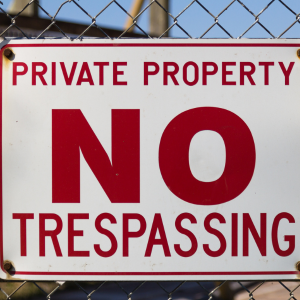
How Long Does the Eviction Process Typically Take in Oklahoma?
The time it takes to complete the eviction process in Oklahoma can vary based on factors like court schedules and tenant responses. Typically:
Notice Period: This can range from 5 to 30 days, depending on the reason.
Court Proceedings: A court date usually takes 5 to 10 days after filing.
Post-Judgment: Once the eviction is granted, the tenant generally has 48 hours to leave after the writ of possession is given.
Following legal steps helps avoid delays.
What Documents Are Necessary to Initiate an Eviction?
To start an eviction in Oklahoma, you need several documents:
- Notice to Quit: This tells the tenant about the eviction process.
- Lease Agreement: A copy showing the lease terms that were broken.
- Eviction Complaint: Filed in court to outline why the eviction is needed.
- Summons and Detainer: Issued by the court to inform the tenant of the legal action.
Having these documents ready makes the process smoother for the landlord.
How Does a Writ of Execution Work in Squatter Cases?
A writ of execution is a court order used to enforce an eviction judgment against squatters. Here’s how it works:
- Issuance: After a court decision favors the property owner, a writ of execution is issued.
- Execution: Law enforcement officers carry out the writ, removing the squatters.
- Restoration of Property Rights: The owner regains property control, restoring their rights.
This legal tool helps maintain property rights and quickly resolves squatter cases.
Can Squatters Gain Ownership Through Legal Means?
Squatters can sometimes gain ownership of a property using adverse possession. According to Oklahoma law, these conditions must be met:
- Continuous Possession: Occupying the property for at least 15 years without interruption.
- Open and Notorious: The occupation must be visible to everyone, including the owner.
- Adverse Possession Requirements: The use of the property is hostile and without the owner’s permission.
If these conditions are met, squatters may file a claim for legal ownership, though it’s a complex process.

Under What Conditions Could a Squatter Claim Ownership?
In Oklahoma, a squatter must meet certain conditions to claim ownership through adverse possession:
- 15 Years Continuous Possession: The squatter must live on the land without stopping for 15 years.
- Open and Notorious Possession: Their presence should be clear and noticeable.
- Exclusive and Hostile Possession: They treat the property as their own without the owner’s consent.
Meeting these conditions is necessary to make a legal claim to the property.
Are There Recent Cases That Set Precedents in Oklahoma?
Recent court cases in Oklahoma have influenced the laws about squatter rights and property disputes. These decisions often focus on:
- Legal Precedents: Important cases offer guidance on handling similar property issues.
- Oklahoma Real Estate Laws: Understanding these laws helps address property ownership complexities.
- Property Disputes: Court rulings provide insights into resolving conflicts effectively.
Keeping up with these cases is important for anyone involved in real estate or dealing with squatters in Oklahoma.
For more detailed information or help, consider contacting Revive Real Estate for guidance on Oklahoma’s property laws.
Distinguishing Squatters from Trespassers
What is the Legal Definition of a Trespasser in Oklahoma?
In Oklahoma, a trespasser enters another person’s property without permission. Oklahoma law says trespassing happens when someone knowingly steps onto private land without authorization. This act ignores the owner’s established property lines and legal rights. Knowing these definitions helps property owners protect their property rights.
How Does Trespassing Differ Legally from Squatting?

It’s important to understand the difference between trespassing and squatting in Oklahoma. A squatter might start as a trespasser but could claim rights through squatters rights or adverse possession. This means they might gain ownership if a squatter stays on a property openly and continuously without permission for a certain time. While trespassers have no property claims, squatters might, under certain conditions. Oklahoma law sets these rules to help landowners protect against long-term unauthorized occupancy.
What Are the Penalties for Trespassing Compared to Squatting?
In Oklahoma, the penalties for trespassing and squatting are different. Trespassers can face fines or criminal charges based on how serious or frequent the trespassing is. Handling squatters is different because they might claim adverse possession.
The eviction process in Oklahoma for squatters can be more complicated, and legal action is required to regain property control. Understanding these differences helps property owners manage these situations effectively.
How Do Oklahoma Laws Address Unauthorized Occupants?
Oklahoma law provides ways to deal with unauthorized occupants. Landowners can use unlawful detainer laws to start eviction for people with no legal right to stay on their property. This process requires serving notices and possibly going to court. Knowing these legal remedies helps landowners reclaim their property lawfully.
What Protections Do Tenants Have Against Wrongful Accusations?
Tenant rights in Oklahoma are clear to protect renters from being wrongly evicted. If accused of trespassing or unauthorized living, tenants have legal defense options in the Oklahoma landlord-tenant laws. These laws ensure tenants get proper notice and that any eviction follows legal procedures. Tenants can also seek legal advice to fight unjust claims, protecting their rights in rental properties.
What Rights Do Landowners Have to Remove Trespassers?
Landowners in Oklahoma have several legal remedies to remove trespassers. They can issue a notice to vacate and, if this fails, start the eviction process. Understanding the state’s trespass laws helps landowners act against unauthorized entries while staying within legal limits. This knowledge helps them maintain control over their property and uphold property rights.
For further guidance on property matters, contact Revive Real Estate for expert advice.
Preventative Measures Against Squatting
How Can Landowners Deter Squatting on Vacant Properties?
Squatting can cause big problems for landowners, especially on vacant properties. Good property management and preventive steps help deter squatters. Landowners can:
- Secure the perimeter: Install fences and gates to block unauthorized access.
- Post legal notices: Put up signs that show the property’s private status and warn against trespassing.
- Maintain regular visits: Frequent check-ins indicate that the property is watched and maintained.

What Security Measures Are Most Effective?
Property owners need strong security measures to prevent squatting. Consider these options:
- High-quality locks: Use deadbolts and advanced locks for doors and windows.
- Surveillance systems: Install cameras that are visible to deter illegal entry.
- Alarm systems: Use alarms that alert owners or security staff if someone enters without permission.
Are There Technological Solutions to Monitor Properties Remotely?
Technology provides solutions for remote monitoring and better property surveillance. Options include:
- Smart cameras: Install cameras with live streaming that you can access on your phone.
- Remote-controlled lighting: Use smart lighting systems to deter intruders by making it look like someone is home.
- Security apps: Use real-time alerts and control security systems from anywhere.
How Important is Property Maintenance in Preventing Squatters?
Proper property maintenance helps prevent squatters by maintaining the property’s appearance and integrity. Well-kept places are less tempting. Important tasks include:
- Routine inspections: Regular checks are performed to find and fix vulnerabilities.
- Landscaping upkeep: Overgrown yards signal vacancy; keep them tidy.
- Structural repairs: Quickly fix damages to avoid easy entry points.
What Regular Inspections Should Landowners Conduct?
Regular inspections help landowners maintain properties and deter squatters. Recommended checks include:
- Maintenance schedule reviews: Ensure every part of the property is routinely serviced.
- Vacancy checks: Frequent visits to empty properties discourage squatters.
- Safety audits: Find and fix any security weaknesses.
How Can Community Watch Programs Assist Property Owners?
Community programs, like neighborhood watch groups, help property owners in these ways:
- Collaboration opportunities: Neighbors can work together to monitor properties.
- Increased awareness: An informed community notices suspicious activity better.
- Enhanced protection: Shared resources and vigilance help protect properties.
Revive Real Estate is dedicated to providing landowners with useful information and strategies for managing properties effectively. Stay proactive and consider getting professional advice for personalized help.
Real Estate Insights and Recommendations
What is the Impact of Squatters on Property Value in Oklahoma?

Squatters can hurt property value in Oklahoma. When they occupy a property, it often:
Lowers the property valuation due to damages or neglect.
Adds legal issues due to squatters rights under Oklahoma property law, making eviction harder.
It makes selling the property difficult, as buyers might fear legal troubles.
Legal remedies are there for property owners. They can take court action to remove squatters and restore property rights. Knowing these steps is key to keeping or boosting property values.
How Can Property Valuation Be Affected by Squatting Incidents?
Squatting incidents can lower property valuation because:
Properties often get damaged when occupied without permission.
There might be adverse possession claims, putting the legal title at risk.
Ongoing issues can cause long legal battles and costs.
In Oklahoma, reducing these risks requires good property management and knowing the laws to protect property values.
Are There Legal Remedies to Recover Damages?
Yes, there are legal remedies for property owners to recover damages from squatters:
- File for eviction following the rules of the Oklahoma legal system.
- Take legal action against trespassers using the courts.
- Tackle adverse possession claims under Oklahoma laws to keep ownership.
Property owners should get help from legal professionals to handle these processes well.
What Steps Can Real Estate Professionals Take to Educate Clients?
Real estate buyers have a key role in teaching clients about the risks of squatters:
- Explain squatters rights and important Oklahoma real estate laws.
- Talk about good property management to reduce risks.
- Share examples of property disputes and solutions to help clients understand.
By informing clients, agents help them make better choices about property investments.
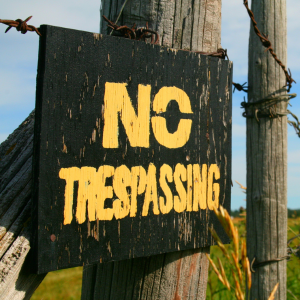
How Should Agents Advise Buyers on Potential Risks?
When guiding buyers, agents should focus on spotting potential risks from squatters:
- Do careful risk assessments during property inspections.
- Give legal advice on landowner rights and how to protect them.
- Suggest ways to keep properties safe from unauthorized occupants.
Well-informed buyers can better protect their investments.
What Resources Are Available for Understanding Local Laws?
For learning about local laws on squatters in Oklahoma, several resources are available:
- Detailed legal guides on Oklahoma property law and tenant rules.
- Online real estate education sites focused on tenant laws and property management resources.
- Workshops and seminars by legal experts on Oklahoma real estate laws.
These resources help property owners and real estate pros stay informed and tackle legal challenges. We Buy Houses in all counties and cities and counties in Oklahoma including Tulsa, Norman, Stillwater, Edmond, Midwest City, El Reno, and Fairfax.
Frequently Asked Questions
What are Squatters’ Rights in Oklahoma?
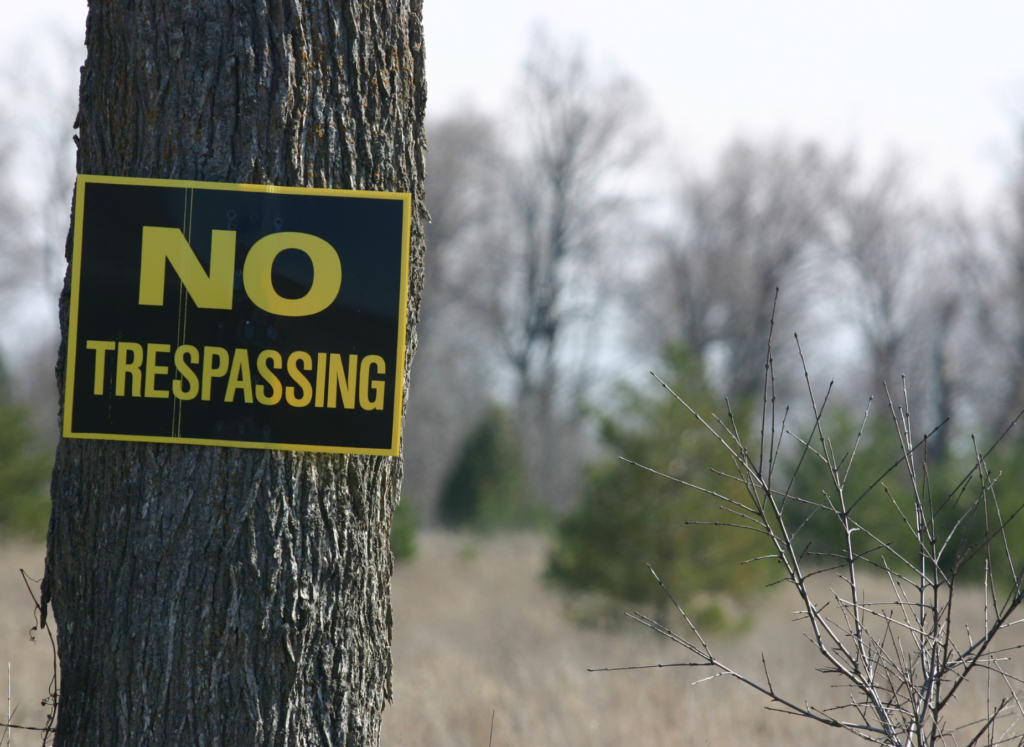
In Oklahoma, squatters can try to claim property through “adverse possession.” This means they must live there openly and without permission for a long time, usually around 15 years.
Can a Squatter Ever Gain Legal Ownership of Property in Oklahoma?
Yes, if a squatter lives on the property continuously and meets certain conditions, they might make a legal claim. However, this requires a court decision to become actual ownership.
How Should Property Owners Handle Unauthorized Occupants?
Owners should check their properties regularly, post “No Trespassing” signs, and use strong locks. If squatters are present, follow legal eviction processes according to the Landlord-Tenant Act.
What Are the Steps for Evicting a Squatter?
To evict a squatter, you must follow the legal eviction process. This includes giving notice and possibly getting a court order. A property management company can help with this.
What Precautions Can Be Taken to Prevent Squatters?

To prevent squatters, visit your property often, keep it looking occupied, and ask neighbors to watch for suspicious activity. You might also hire a property management service for regular checks.
What Role Does the Oklahoma Senate Play Regarding Property Laws?
The Oklahoma Senate helps create laws about property, including rules about squatters and adverse possession.
Who Can Help with Managing Properties to Avoid Squatter Issues?
Services like TurboTenant can help prevent unauthorized occupancy. Marketing, accounting, and property management professionals are important for keeping properties safe.
What Should You Do If You Discover a Squatter on Your Property?
If you find a squatter, do not try to remove them yourself. Contact the authorities and speak with a lawyer to learn about your options and start the proper eviction process.
Sell Your Oklahoma House A Matter Of Days…
No Hidden Fees or Commissions. We Buy Houses in Oklahoma As-Is And Close On The Day Of Your Choice. Fill Out The Form Below.
Additional Resources For Oklahoma Sellers
If you need to Sell your house fast in Oklahoma, we promise to make you a fair, no-obligation, no-hassle offer. Take it or leave it. You’ve got nothing to lose.
Do you still have questions? Calling us could be the best decision you make all week!
Call Us Now at (405) 669-6466


